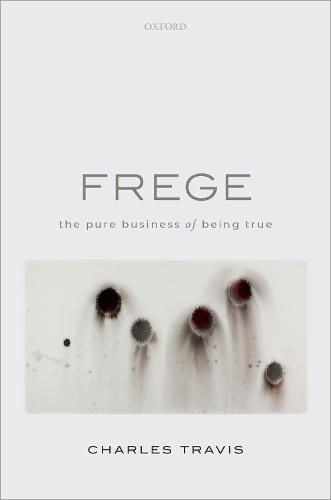Readings Newsletter
Become a Readings Member to make your shopping experience even easier.
Sign in or sign up for free!
You’re not far away from qualifying for FREE standard shipping within Australia
You’ve qualified for FREE standard shipping within Australia
The cart is loading…






This book is about Gottlob Frege. The guiding thought is that Frege left philosophy a legacy which has been largely ignored, not least of all by his admirers. In order of logical priority, Frege’s first concern was to locate the law-like behaviour of truths and falsehoods merely by virtue of their being such (in his terms, the structure of Wahrsein). The just-mentioned legacy lies in his first step towards that goal. It consists in winnowing the ‘logical’ from the ‘psychological’, the business of being true as such from that of holding, or holding forth as true-and to keep these separate. A first lesson: what belongs to what is thus abstracted cannot be read directly back into what it was abstracted from. This is what is most widely ignored.The book is divided in three parts. The first presents Frege’s general picture of the business of being true-of what belongs to the abstraction. The second is primarily concerned with steps Frege takes (in print) between 1891 and 1895, to pave the way for what became, after logic itself, his central project, that whose attempted carrying out is contained in Grundgesetze I. The third part concerns views of logic, truth, the inexorableness of logic, which Frege eventually came to hold, and what it might be to study ‘The Mind’ as opposed to minds.
$9.00 standard shipping within Australia
FREE standard shipping within Australia for orders over $100.00
Express & International shipping calculated at checkout
This book is about Gottlob Frege. The guiding thought is that Frege left philosophy a legacy which has been largely ignored, not least of all by his admirers. In order of logical priority, Frege’s first concern was to locate the law-like behaviour of truths and falsehoods merely by virtue of their being such (in his terms, the structure of Wahrsein). The just-mentioned legacy lies in his first step towards that goal. It consists in winnowing the ‘logical’ from the ‘psychological’, the business of being true as such from that of holding, or holding forth as true-and to keep these separate. A first lesson: what belongs to what is thus abstracted cannot be read directly back into what it was abstracted from. This is what is most widely ignored.The book is divided in three parts. The first presents Frege’s general picture of the business of being true-of what belongs to the abstraction. The second is primarily concerned with steps Frege takes (in print) between 1891 and 1895, to pave the way for what became, after logic itself, his central project, that whose attempted carrying out is contained in Grundgesetze I. The third part concerns views of logic, truth, the inexorableness of logic, which Frege eventually came to hold, and what it might be to study ‘The Mind’ as opposed to minds.